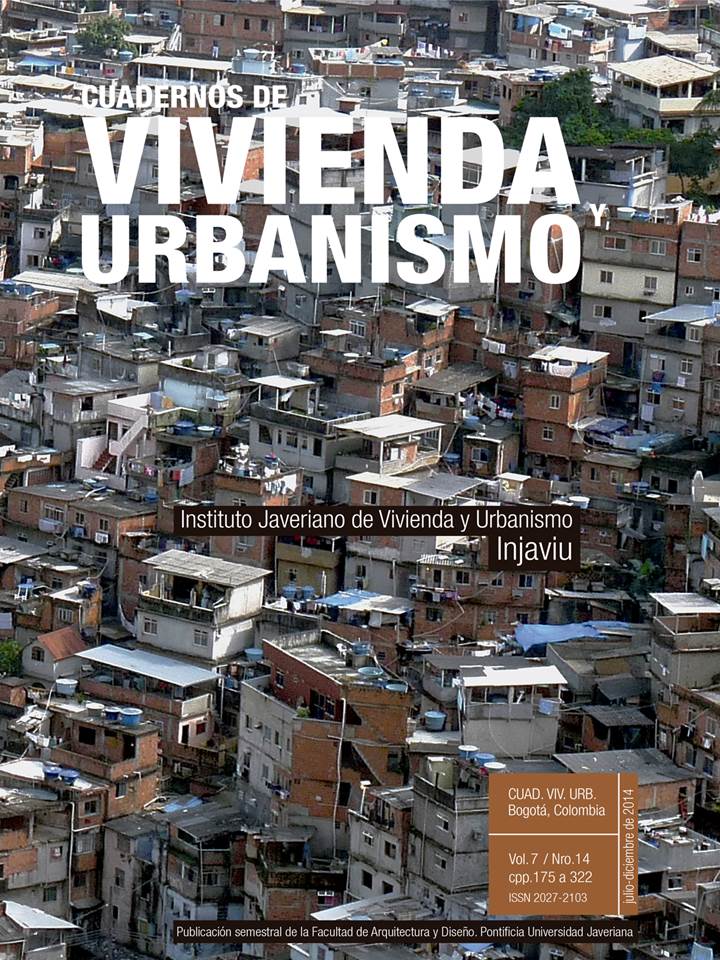Abstract
This paper discusses the concept of singularity, which emerges within the opposite binariesof formal/informal, legal/illegal, center/periphery, aiming to overcome this rationalityin order to promote theoretical alternatives that make possible to re-signify thesocio-spatial characteristics of the city in all its forms. It also suggests a methodologicaltool called the singularity mapping, from the idea of the composition plans developedby Deleuze & Guattari (1997), which interact and contribute to create strength lines oftime and space to make visible the social and spatial mobility. The informal sector Suba-Tibabuyes will provide the empirical case to discuss the potentials of this conceptualand methodological alternative.This journal is registered under a Creative Commons Attribution 4.0 International Public License. Thus, this work may be reproduced, distributed, and publicly shared in digital format, as long as the names of the authors and Pontificia Universidad Javeriana are acknowledged. Others are allowed to quote, adapt, transform, auto-archive, republish, and create based on this material, for any purpose (even commercial ones), provided the authorship is duly acknowledged, a link to the original work is provided, and it is specified if changes have been made. Pontificia Universidad Javeriana does not hold the rights of published works and the authors are solely responsible for the contents of their works; they keep the moral, intellectual, privacy, and publicity rights.
Approving the intervention of the work (review, copy-editing, translation, layout) and the following outreach, are granted through an use license and not through an assignment of rights. This means the journal and Pontificia Universidad Javeriana cannot be held responsible for any ethical malpractice by the authors. As a consequence of the protection granted by the use license, the journal is not required to publish recantations or modify information already published, unless the errata stems from the editorial management process. Publishing contents in this journal does not generate royalties for contributors.


